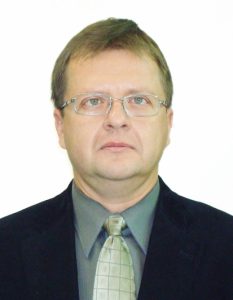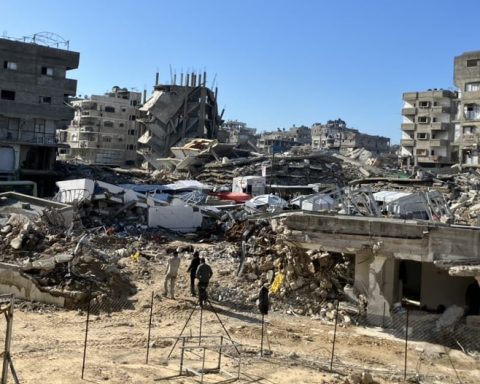 Oleksii Korzh is Head of the Department of General Practice – Family Medicine at Kharkiv National Medical University, Kharkiv, Ukraine
Oleksii Korzh is Head of the Department of General Practice – Family Medicine at Kharkiv National Medical University, Kharkiv, Ukraine
Three years into the war in Ukraine, the country’s healthcare system has faced unprecedented and relentless challenges. At the heart of this struggle is primary care, the foundation of any healthcare system, which has been severely tested yet remarkably resilient. Amid destruction and displacement, healthcare providers and communities have demonstrated extraordinary adaptability.
The war has placed immense pressure on Ukraine’s primary care system. Widespread destruction of healthcare facilities, particularly in active conflict zones, has left millions without access to essential medical services. According to the World Health Organization (WHO), hundreds of hospitals and clinics have been damaged or destroyed, forcing healthcare providers to operate in makeshift facilities with limited resources.
The mass displacement of Ukrainians has further compounded the crisis. Internally displaced persons (IDPs) and refugees often encounter barriers to accessing care, including language differences, loss of medical records, and the psychological burden of displacement. The war has also led to severe staffing shortages, as many healthcare workers have been forced to flee their homes or relocate to safer regions.
The war has also led to severe staffing shortages, as many healthcare workers have been forced to flee their homes or relocate to safer regions.
Disruptions in medical supply chains have created persistent shortages of essential drugs and medical equipment. Meanwhile, the increased burden of trauma and mental health conditions—including depression, anxiety, and post-traumatic stress disorder (PTSD) has stretched primary care services to their limits. The WHO estimates that nearly 10 million Ukrainians are now at risk of developing mental health disorders, highlighting an urgent need for comprehensive psychological support.
Despite these challenges, Ukraine’s primary care system has demonstrated remarkable adaptability. Telemedicine has emerged as a critical tool, enabling healthcare providers to reach patients in conflict zones and remote areas. Virtual consultations have allowed doctors to monitor chronic conditions, provide mental health support, and offer guidance on managing acute illnesses.
Mobile clinics have also played a vital role in delivering care to IDPs and those in hard-to-reach areas. These clinics, often operated by NGOs and international organizations, provide essential services such as vaccinations, maternal care, and treatment for chronic diseases. They have become a lifeline for communities cut off from traditional healthcare facilities.
Community health initiatives have also gained traction, addressing the social determinants of health exacerbated by the war.
Training programs have been implemented to equip healthcare workers with the skills needed to address the unique challenges of wartime medicine. For example, primary care providers have received training in trauma care, mental health first aid, and the management of war-related injuries. These programs have not only improved the quality of care but also boosted the morale of healthcare workers.
Community health initiatives have also gained traction, addressing the social determinants of health exacerbated by the war. Local organizations have set up support groups, health education programs, and outreach services to promote well-being and prevent disease. These efforts have fostered a sense of solidarity and resilience within communities.
The dedication of Ukraine’s healthcare workers cannot be overstated. Despite the constant threat of violence, many have remained on the frontlines, working long hours with minimal resources to provide care to those in need. Their commitment has saved countless lives, offering stability and hope in a time of profound uncertainty.
Patients, too, have shown remarkable strength and adaptability. Many have learned to navigate telemedicine platforms, adhere to treatment plans, and support one another in times of need. Stories of individuals traveling long distances to seek care or assisting their neighbors in medical crises are a testament to the unbreakable spirit of the Ukrainian people.
International organizations and NGOs have played an instrumental role in sustaining Ukraine’s primary care system. Groups such as the WHO, Médecins Sans Frontières (MSF), and various humanitarian organizations have provided critical medical supplies, funding, and technical support. Partnerships with foreign governments and institutions have facilitated the training of healthcare workers and the implementation of innovative healthcare solutions tailored to wartime conditions.
Three years of war have tested the very limits of Ukraine’s healthcare system. Yet, they have also revealed an extraordinary capacity for resilience, adaptation, and innovation. As the war continues, investing in primary care remains essential—not only for health but for hope. It is a powerful reminder that even in the darkest times, the commitment to care and community endures.
Deputy Editor’s note, see also: https://bjgplife.com/a-letter-from-ukraine-challenges-for-primary-care/
Featured image by Diana Vyshniakova on Unsplash






